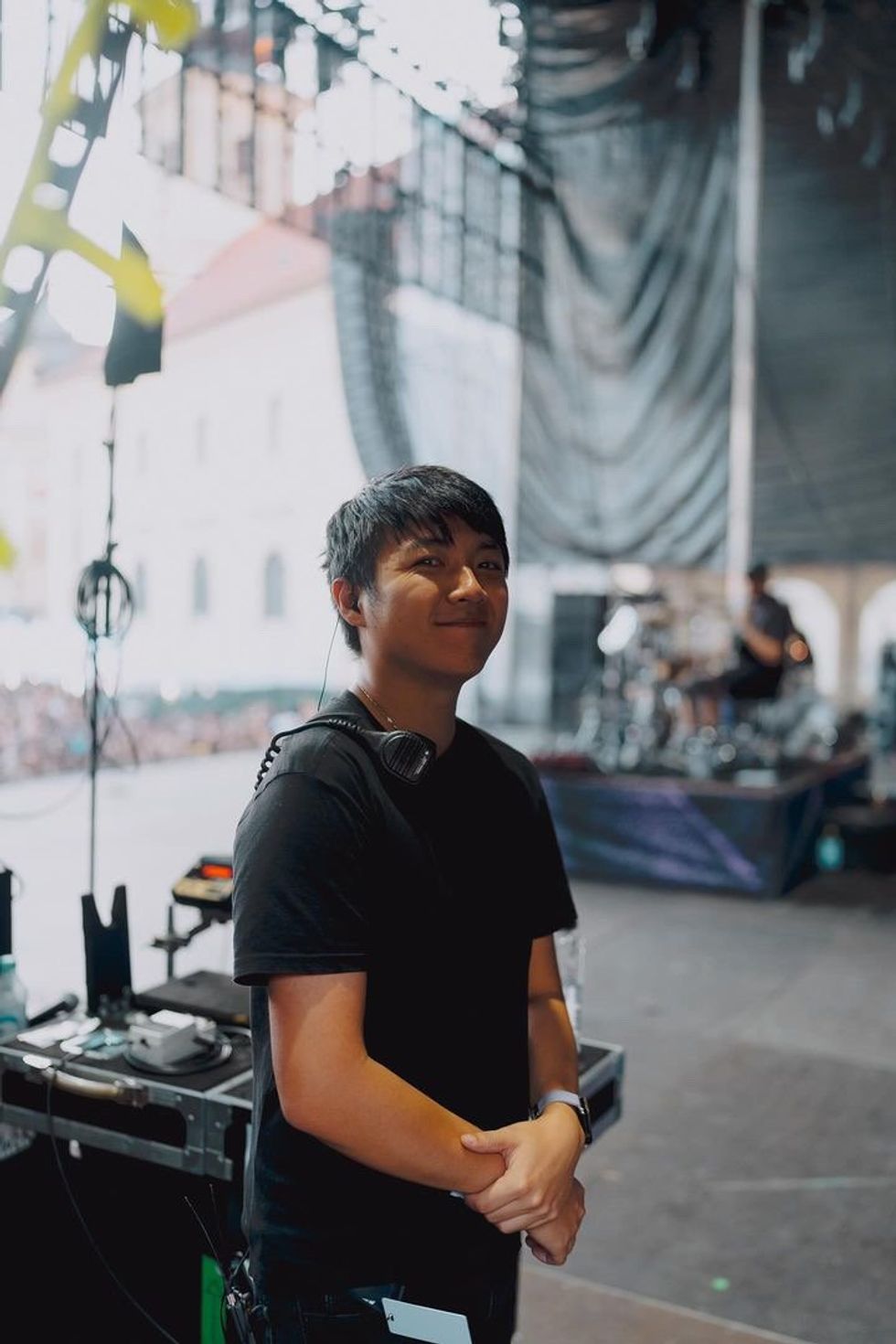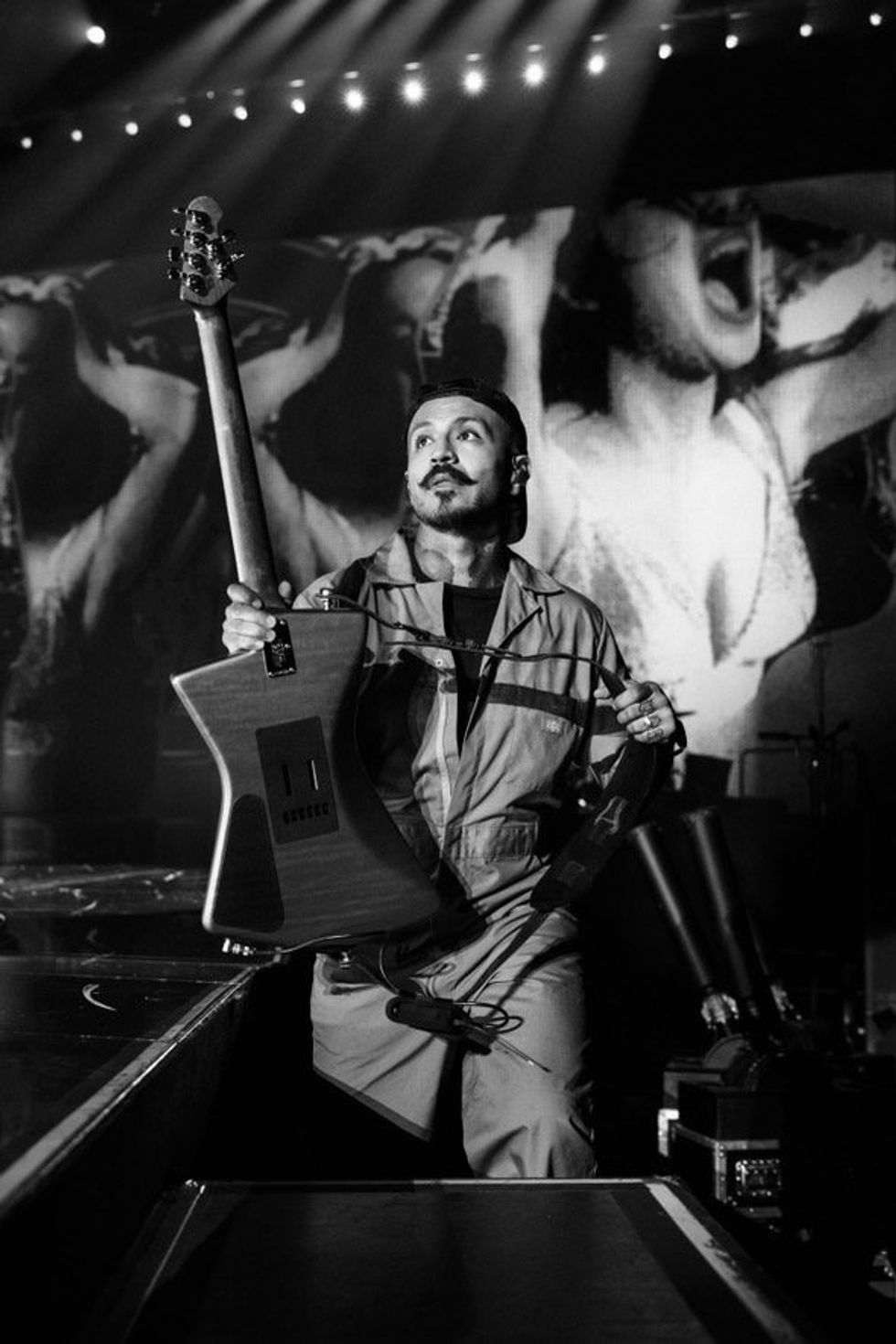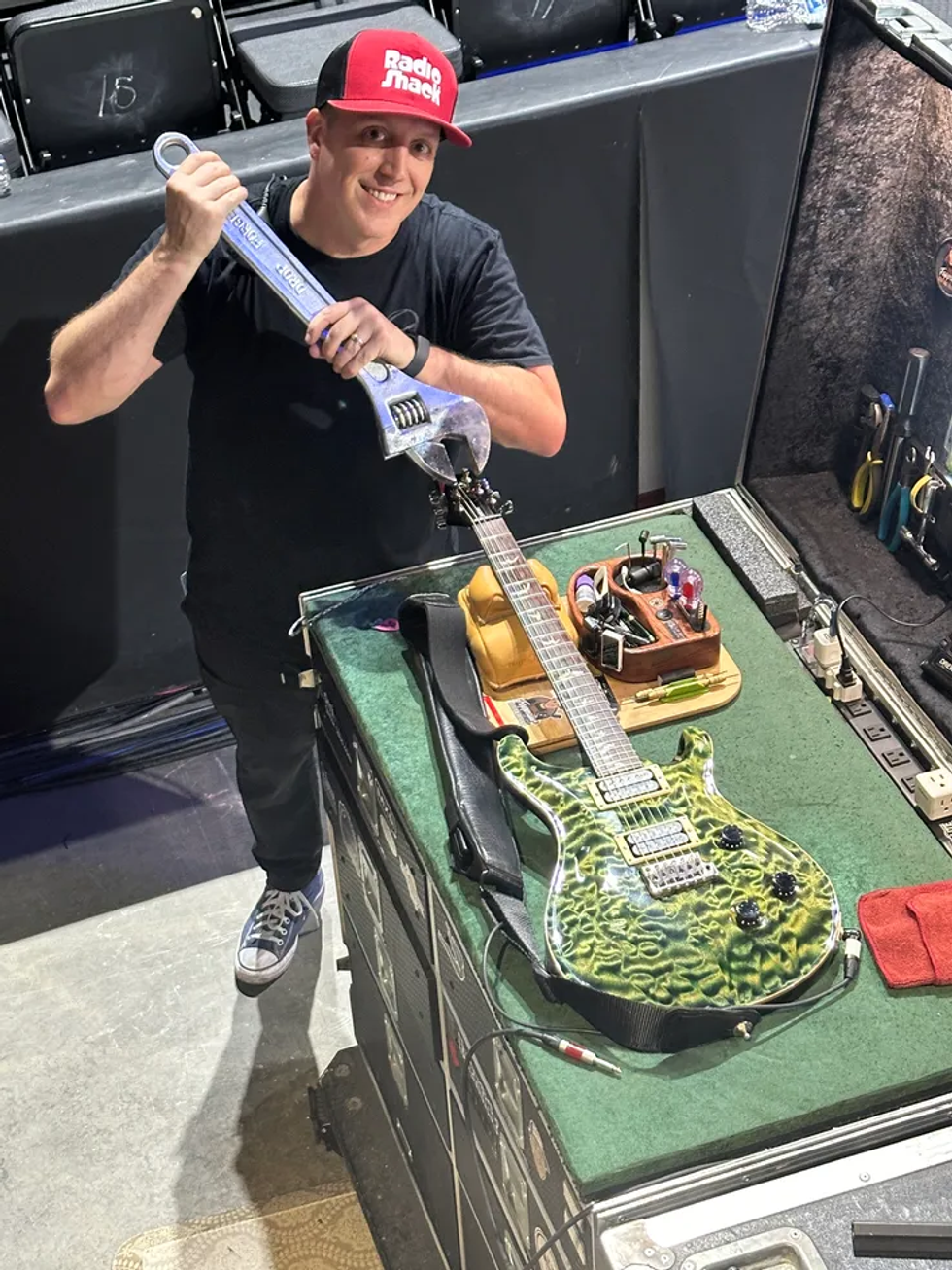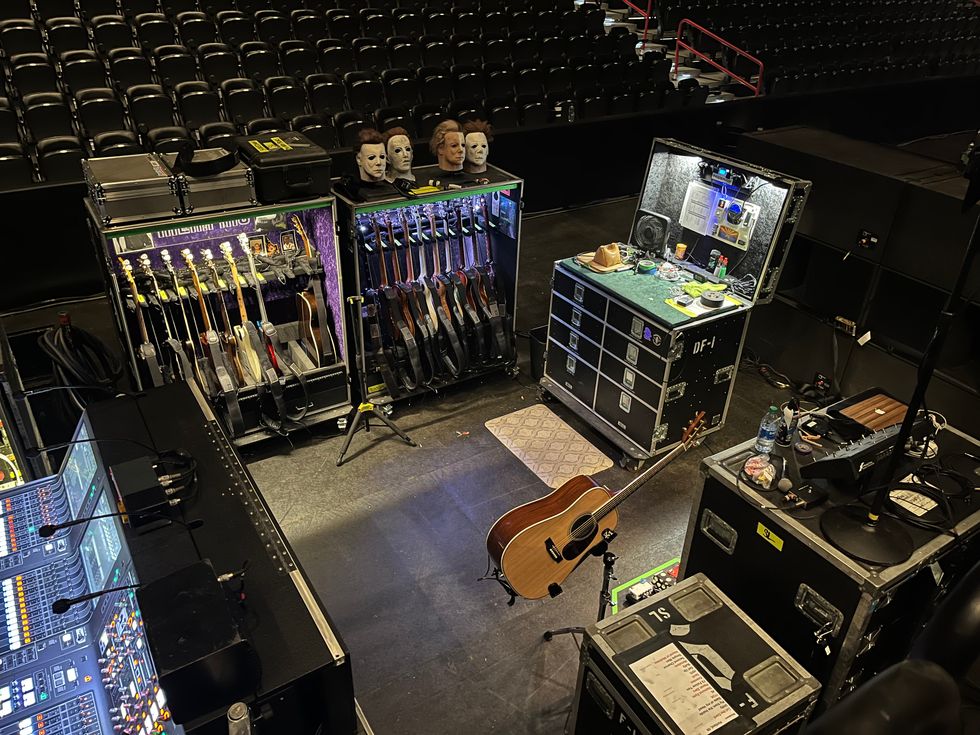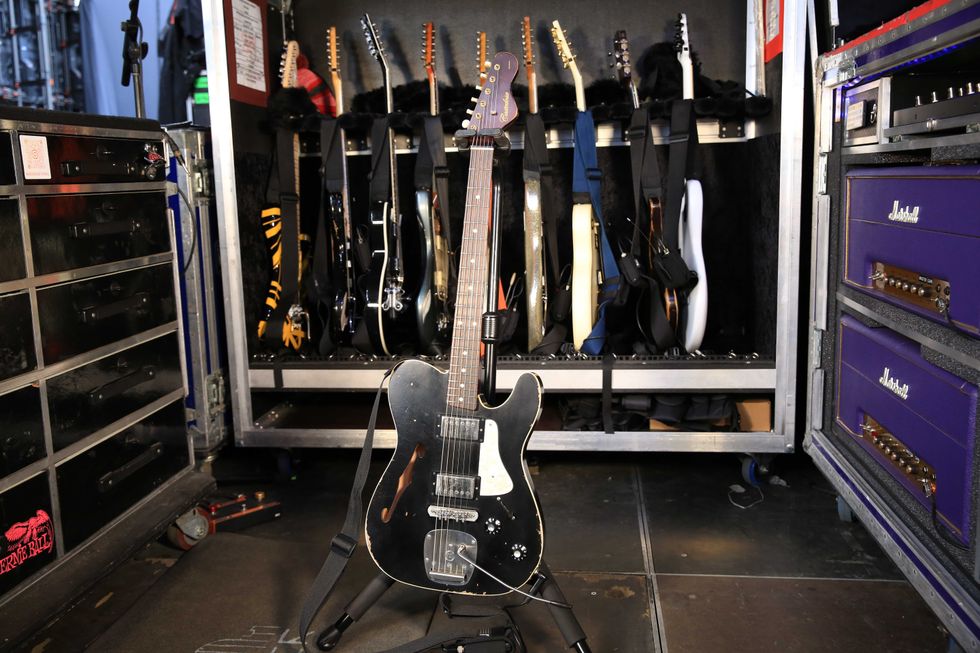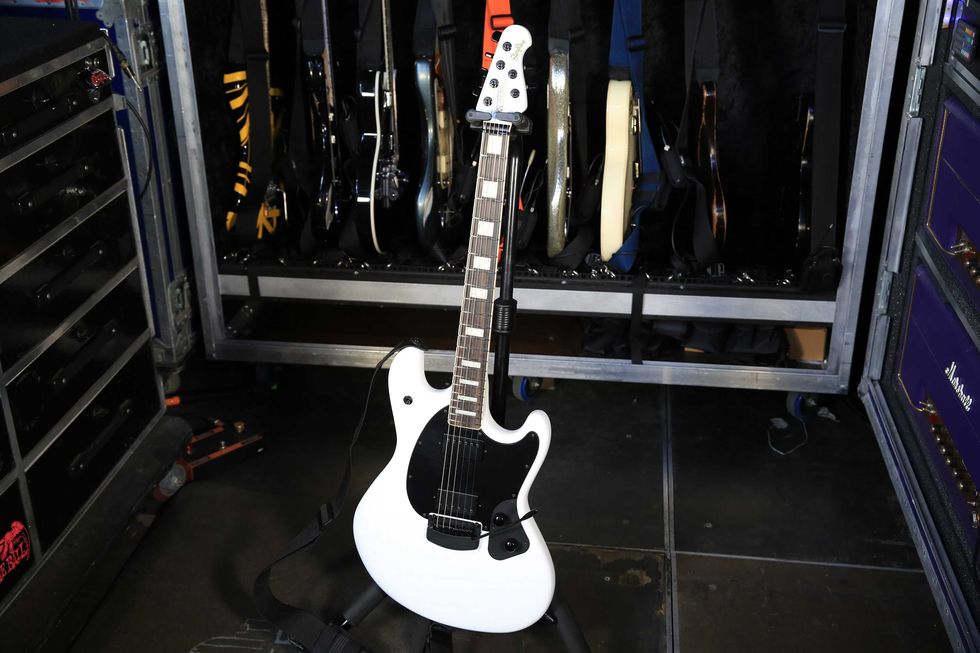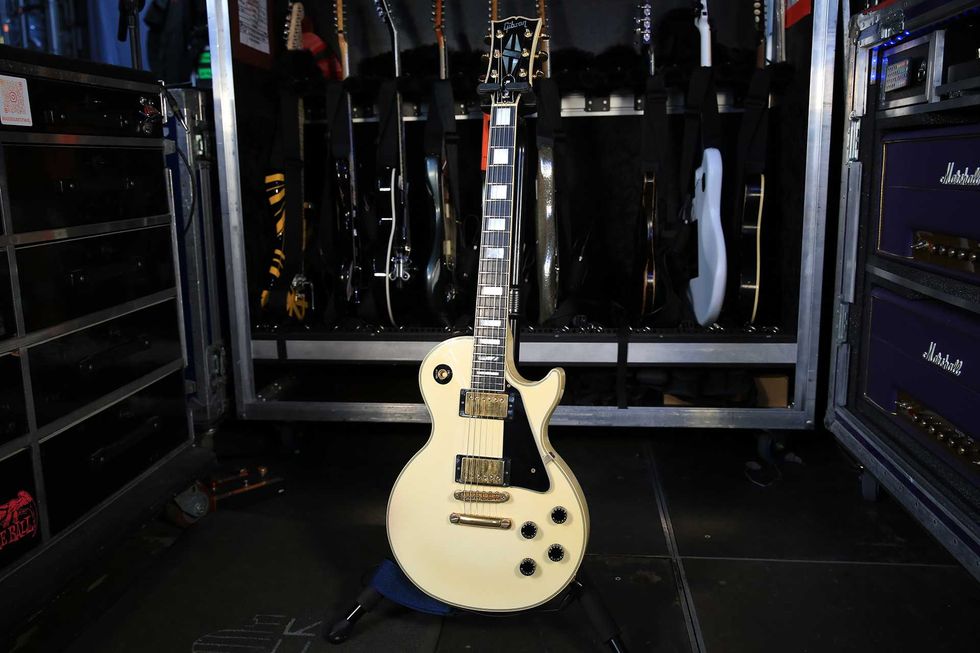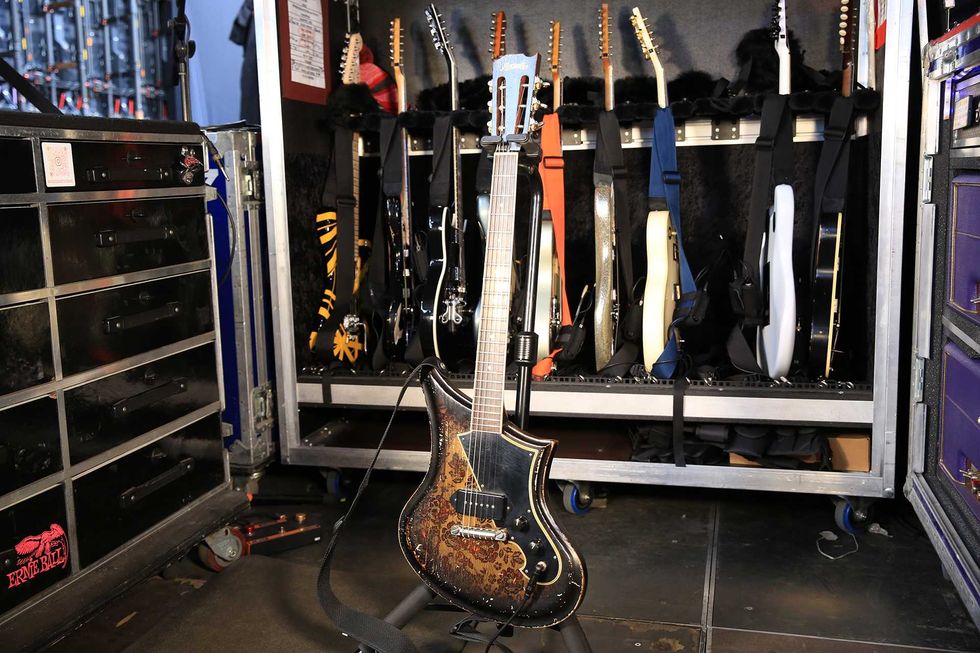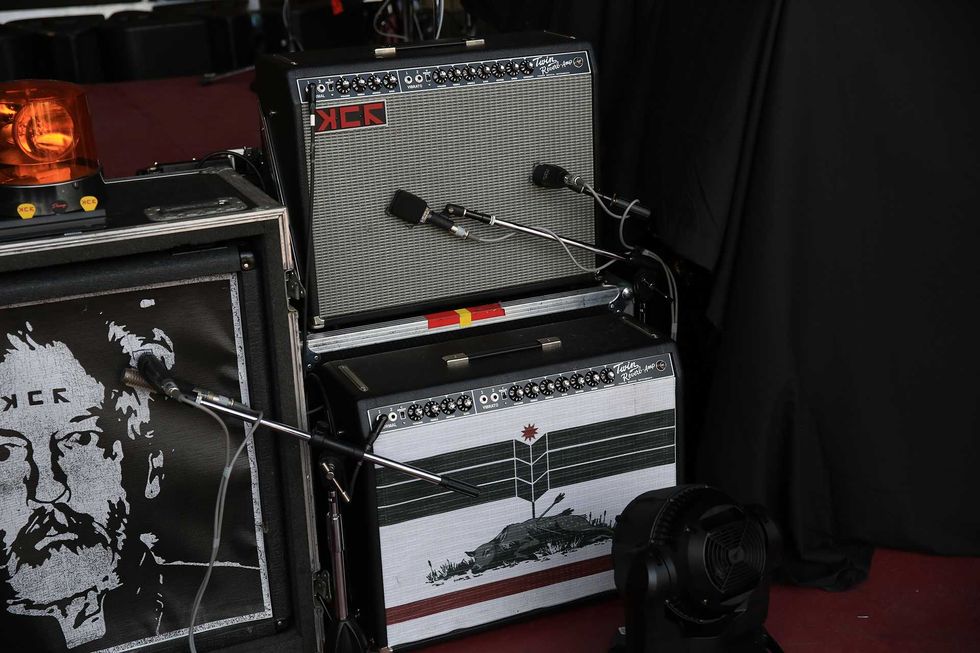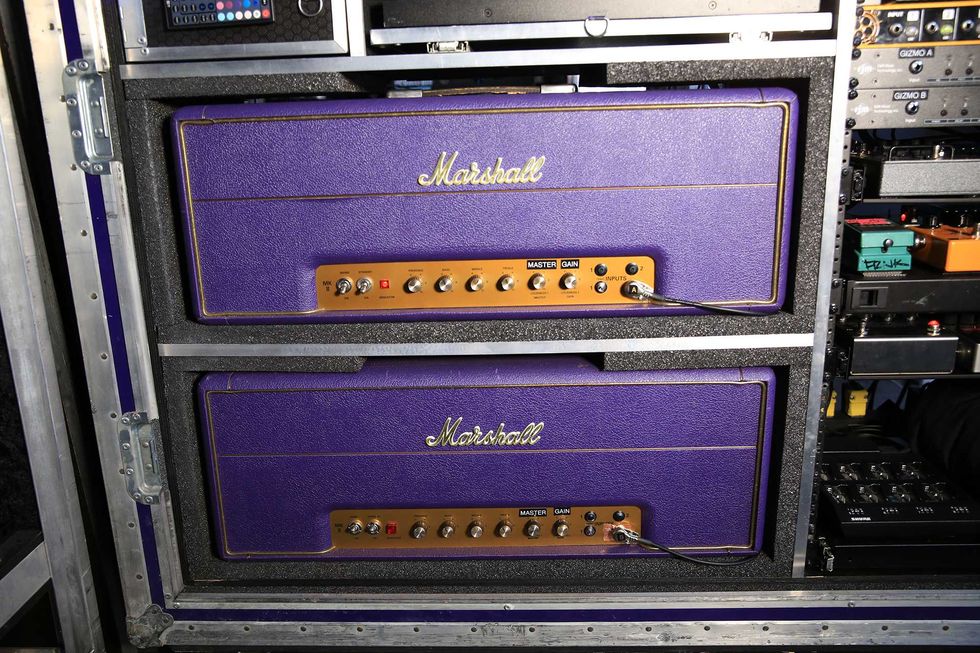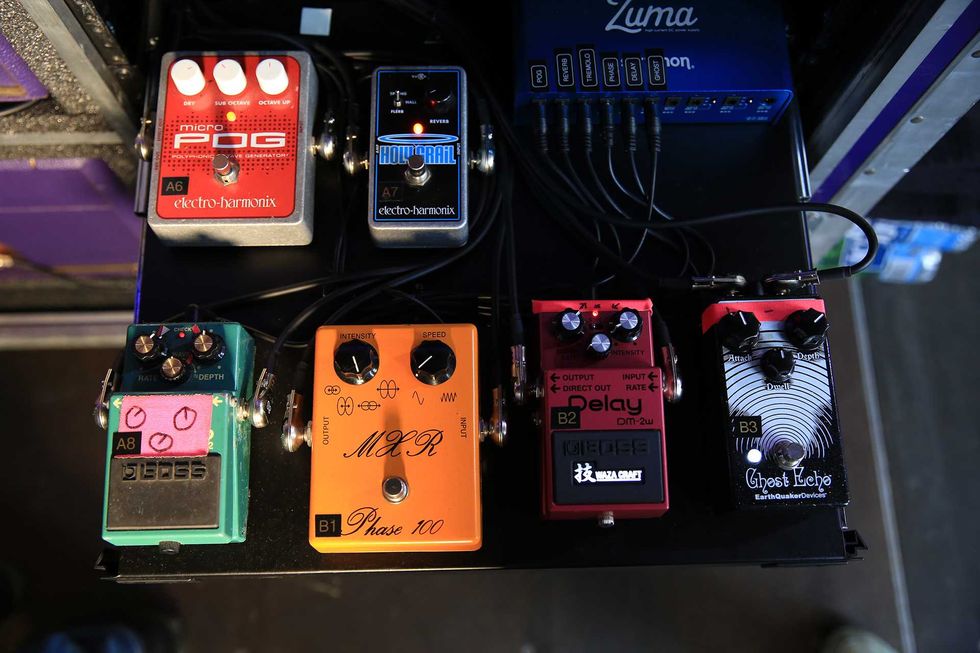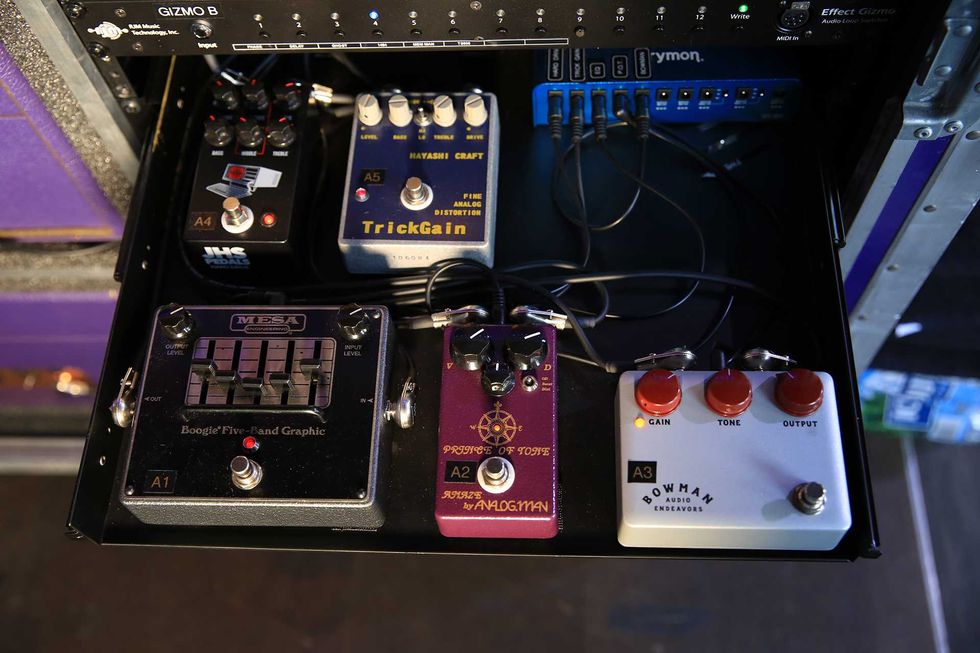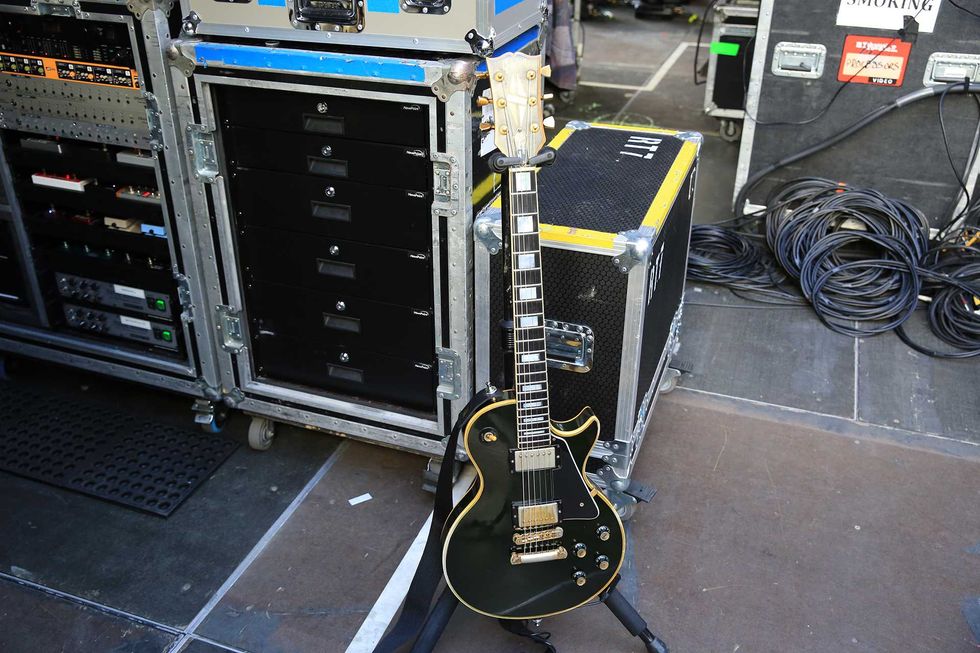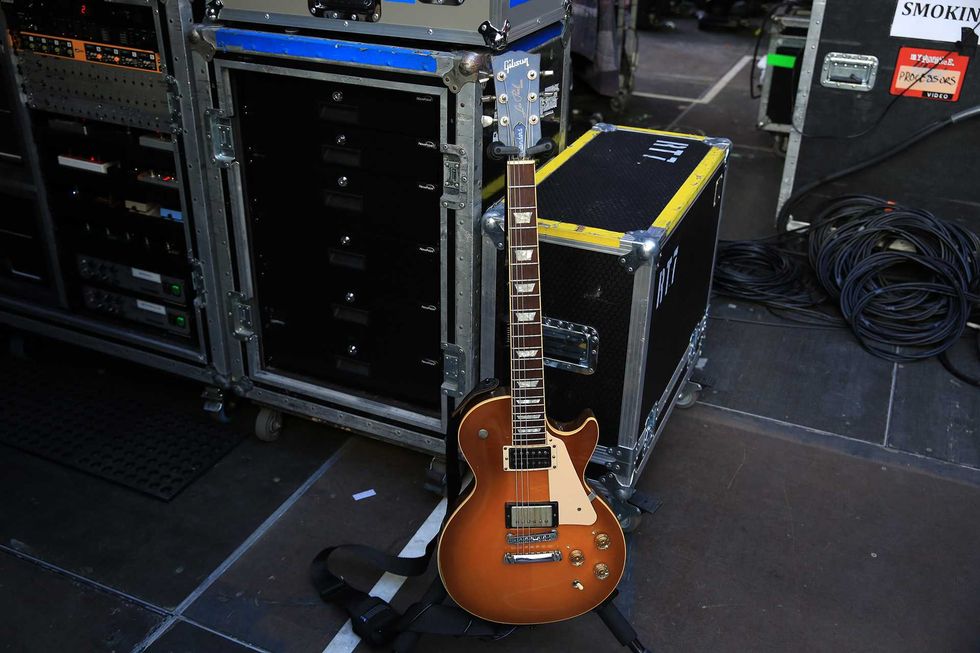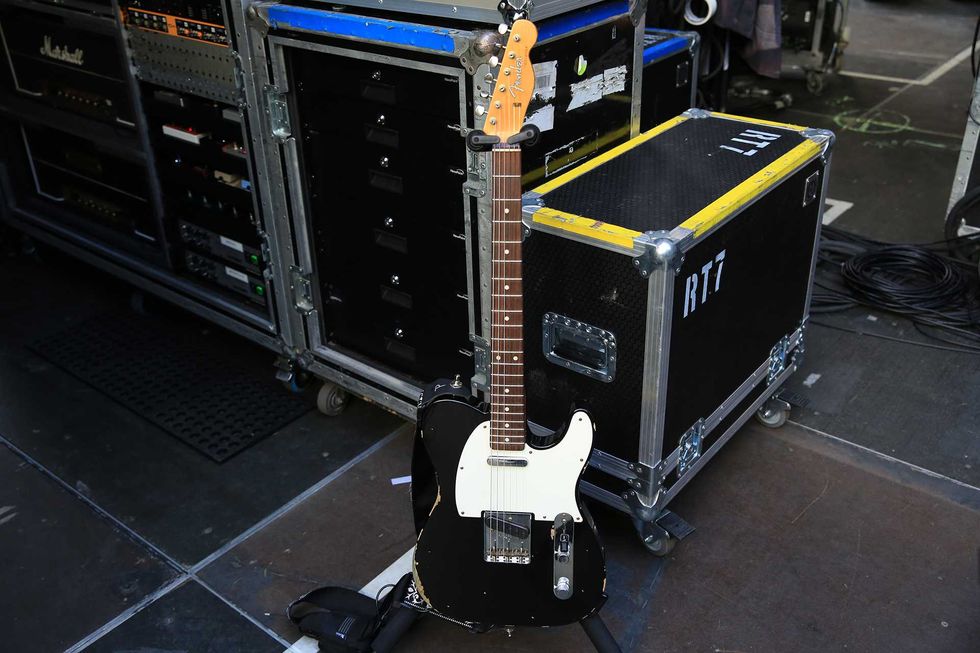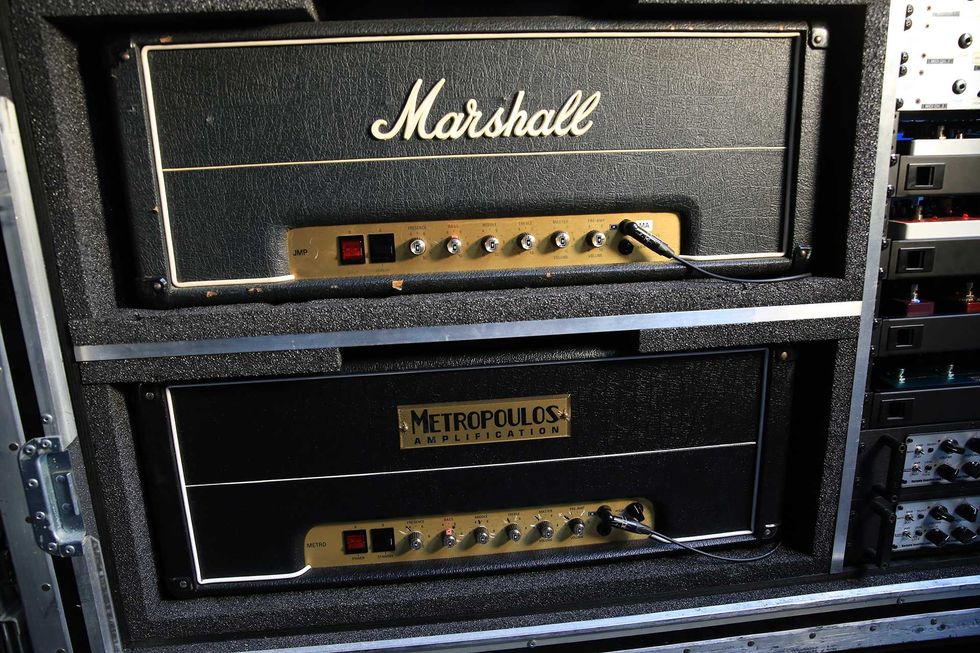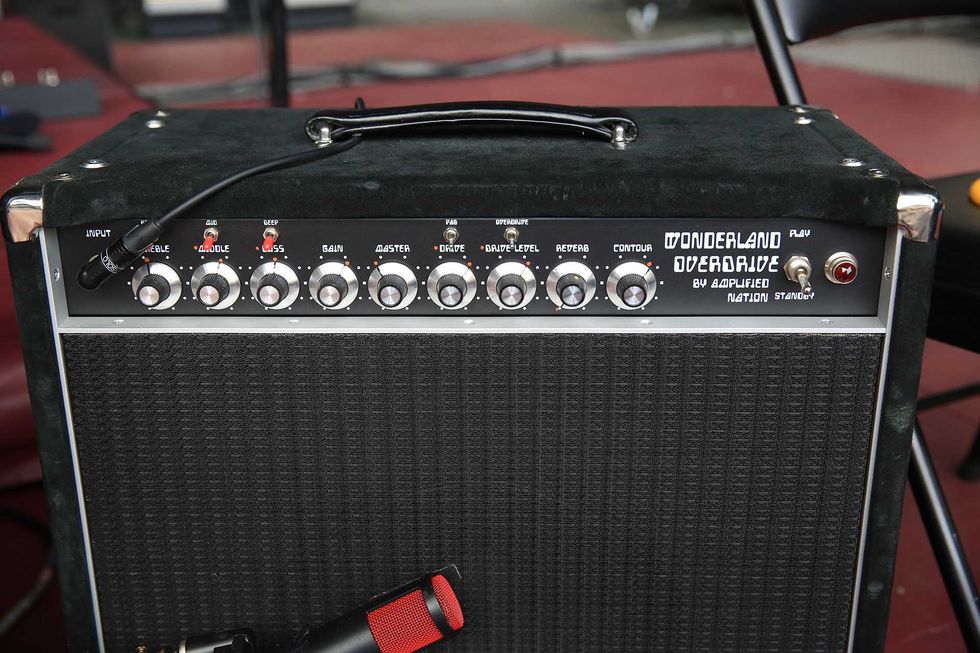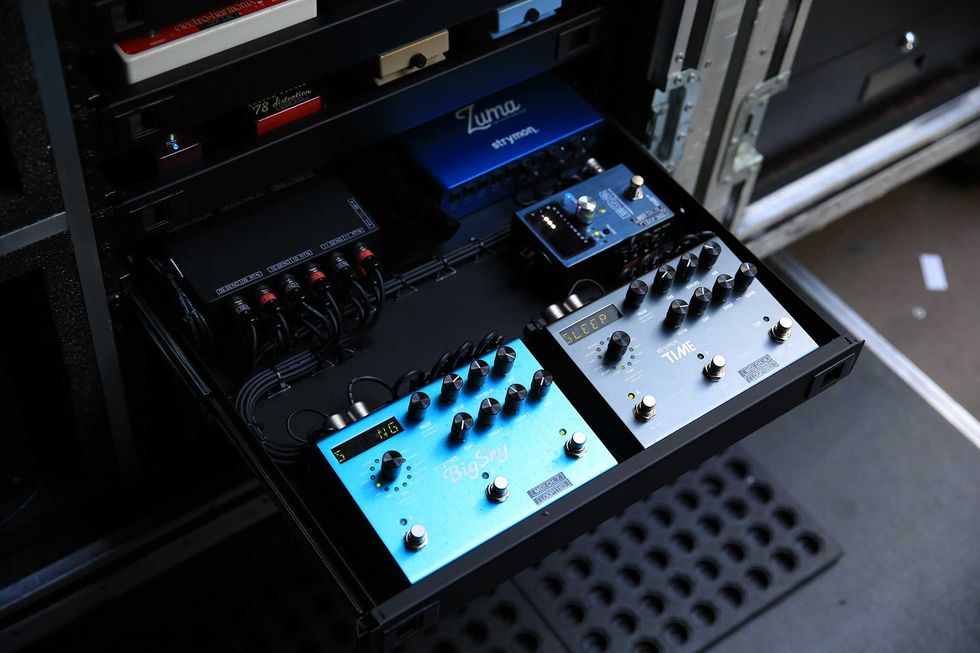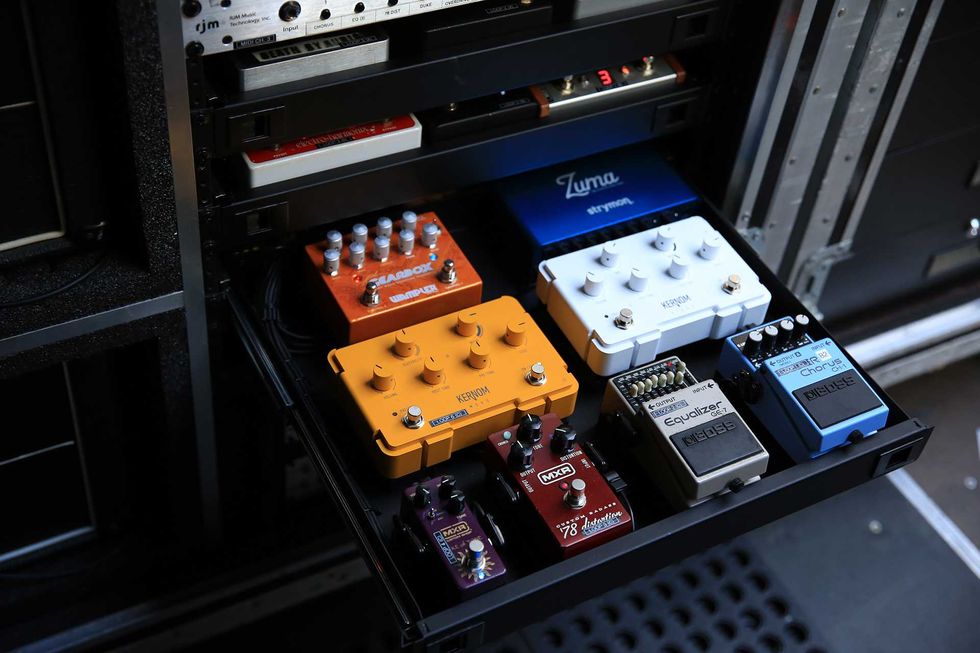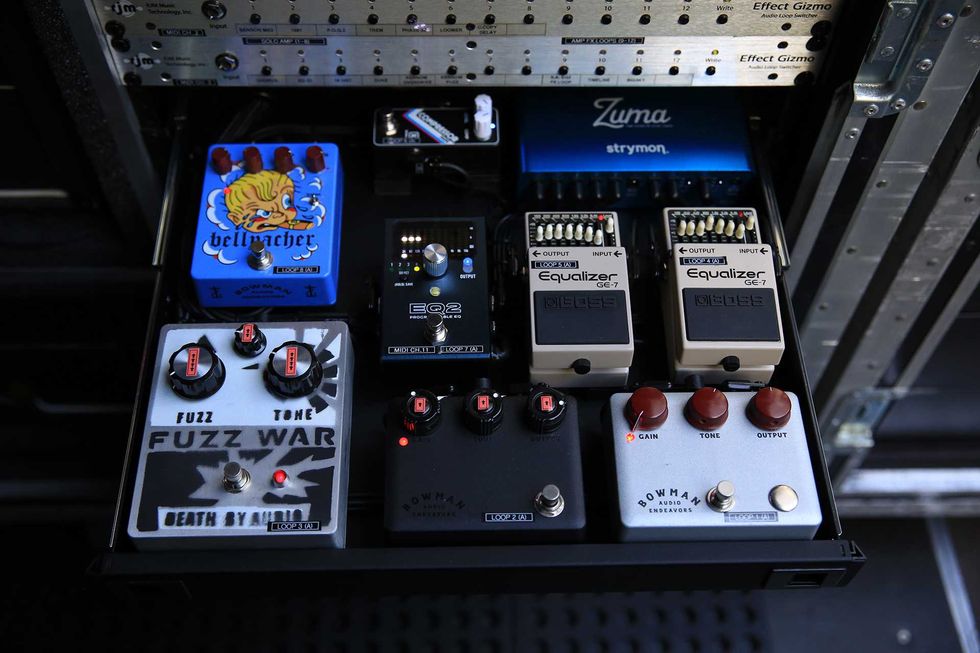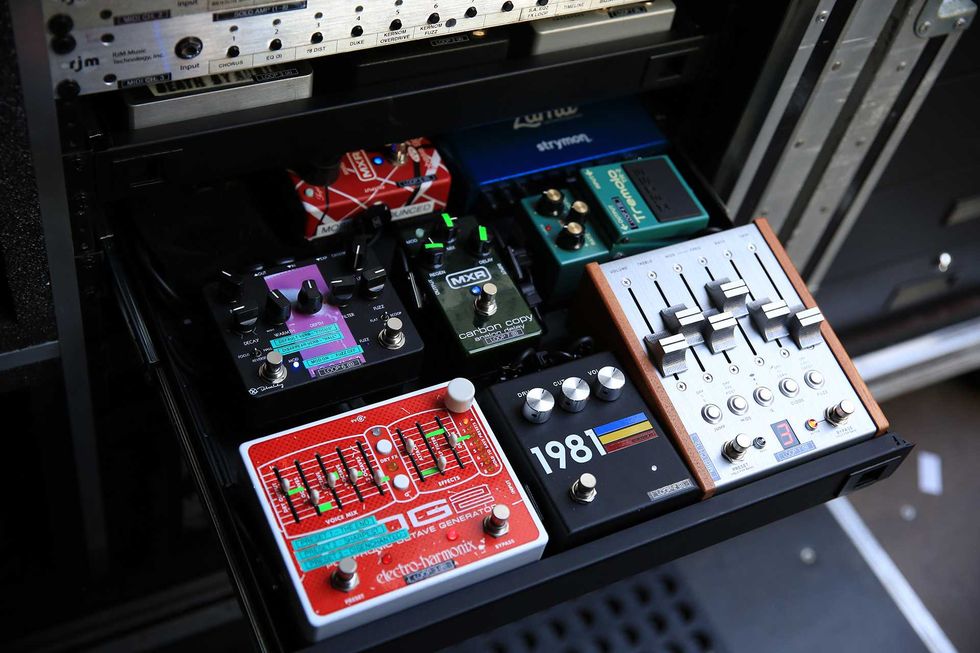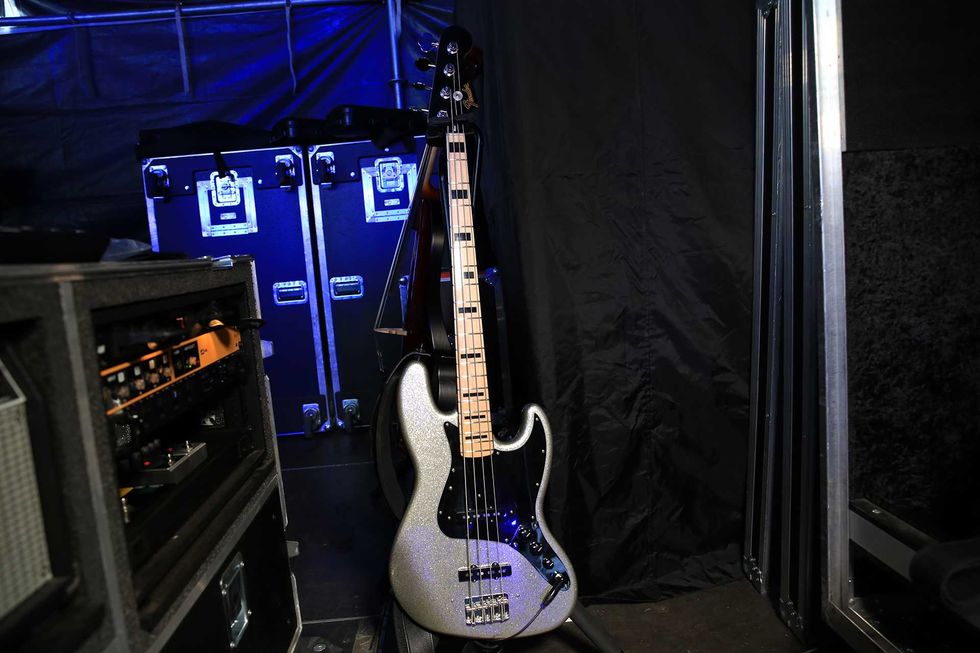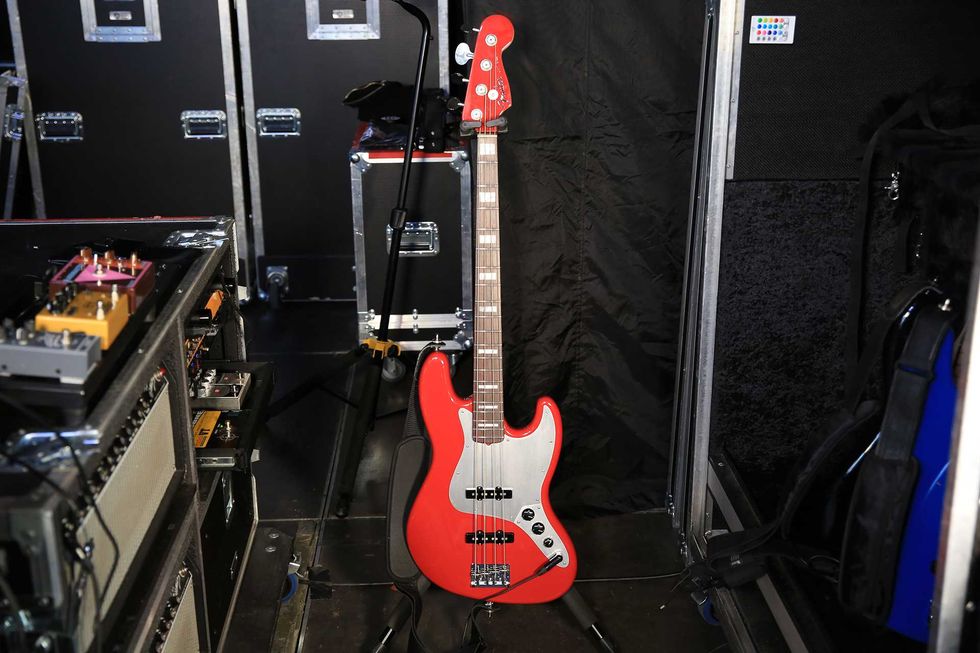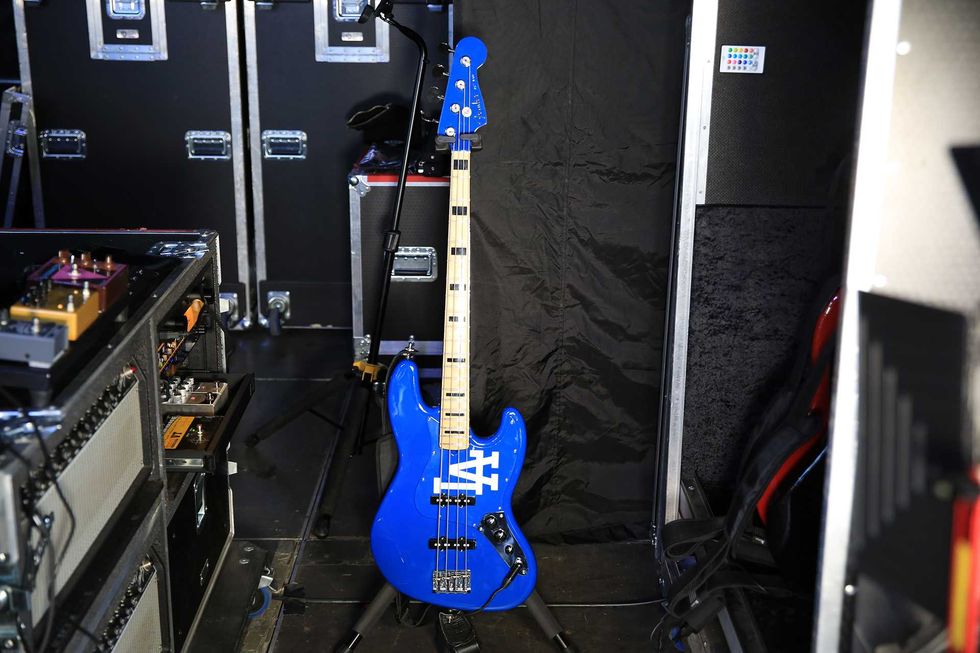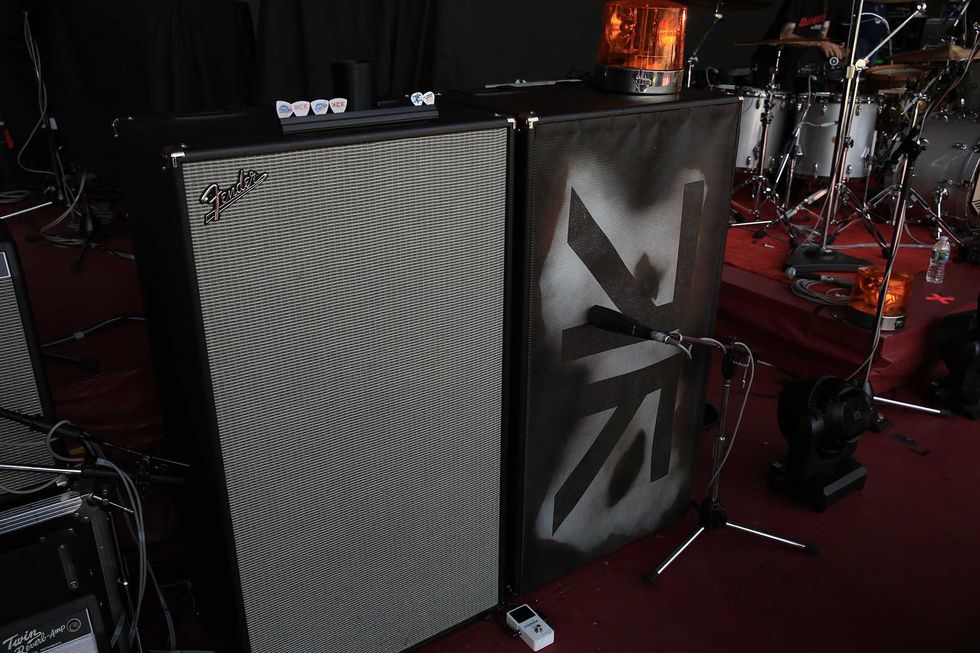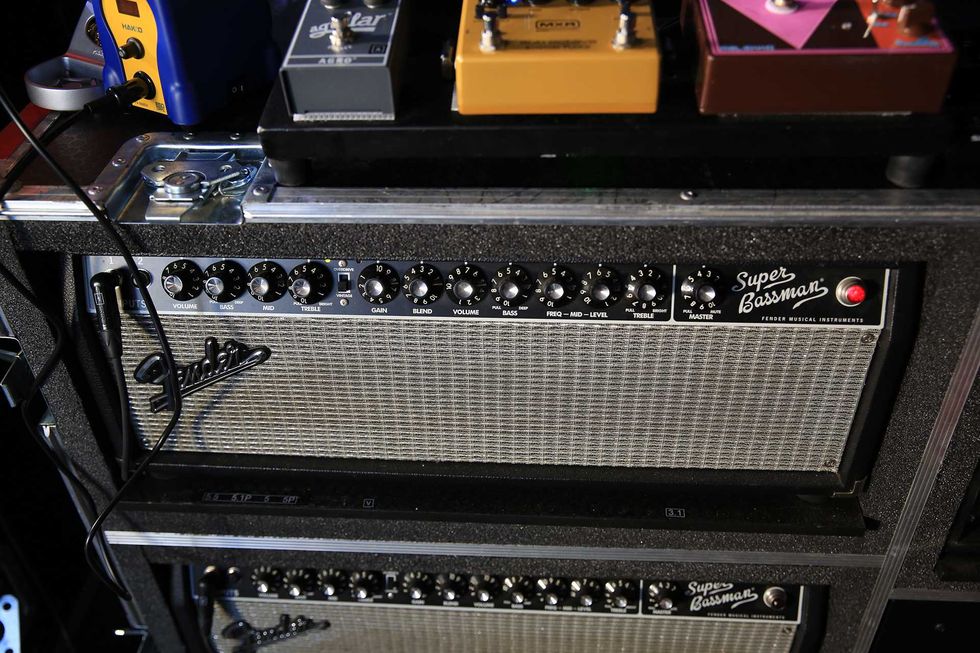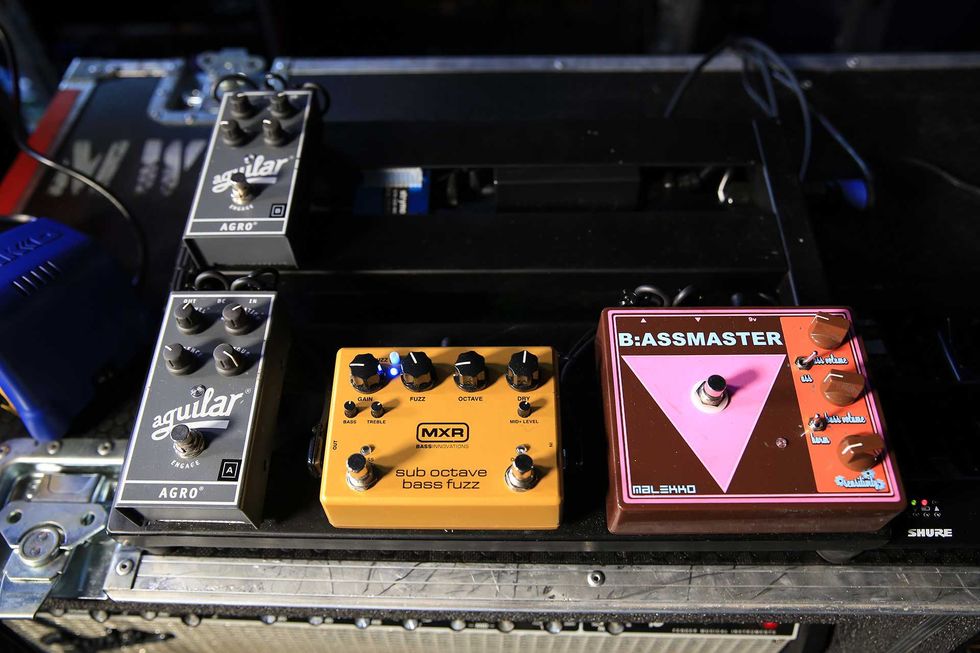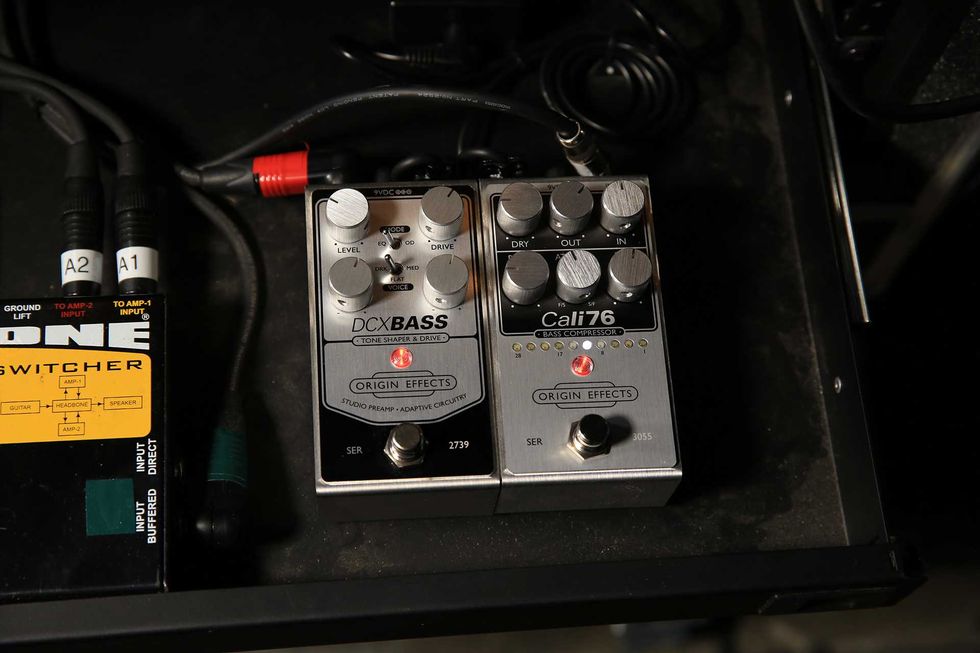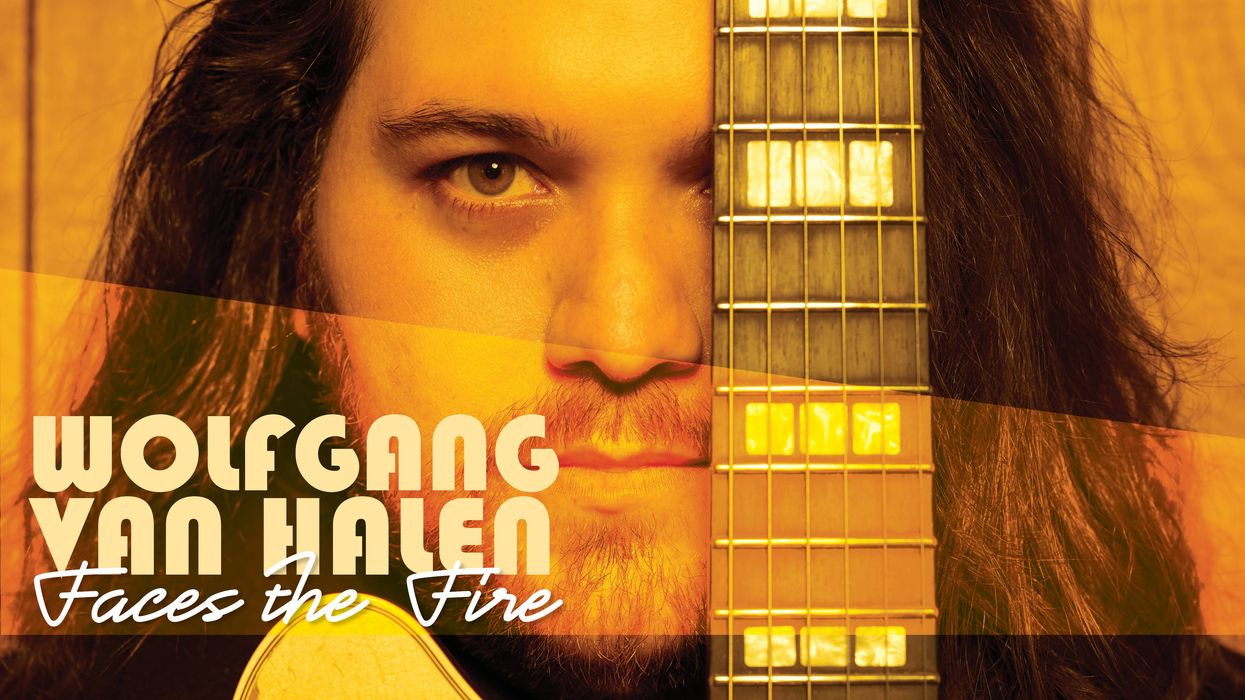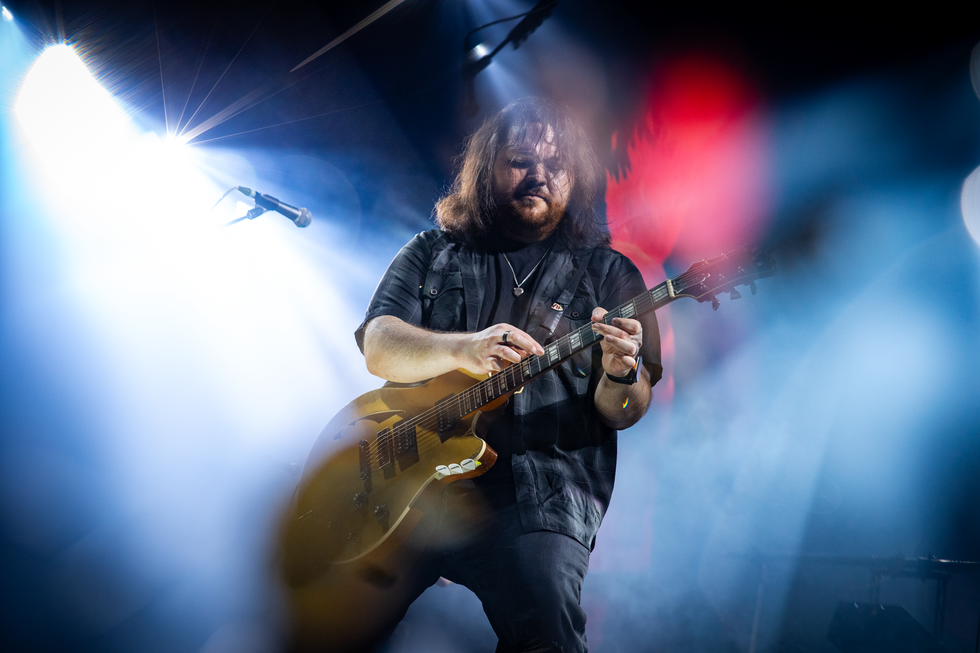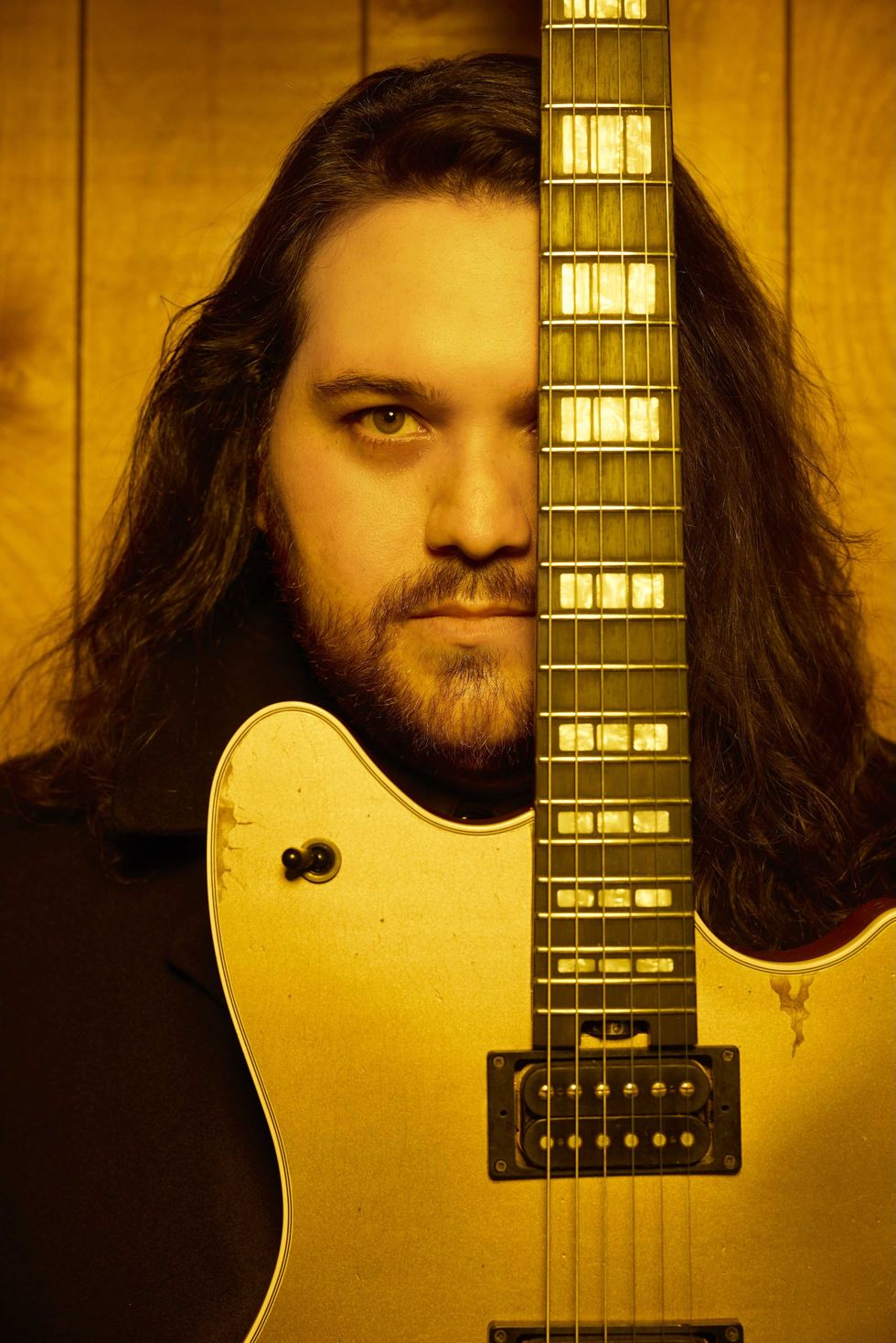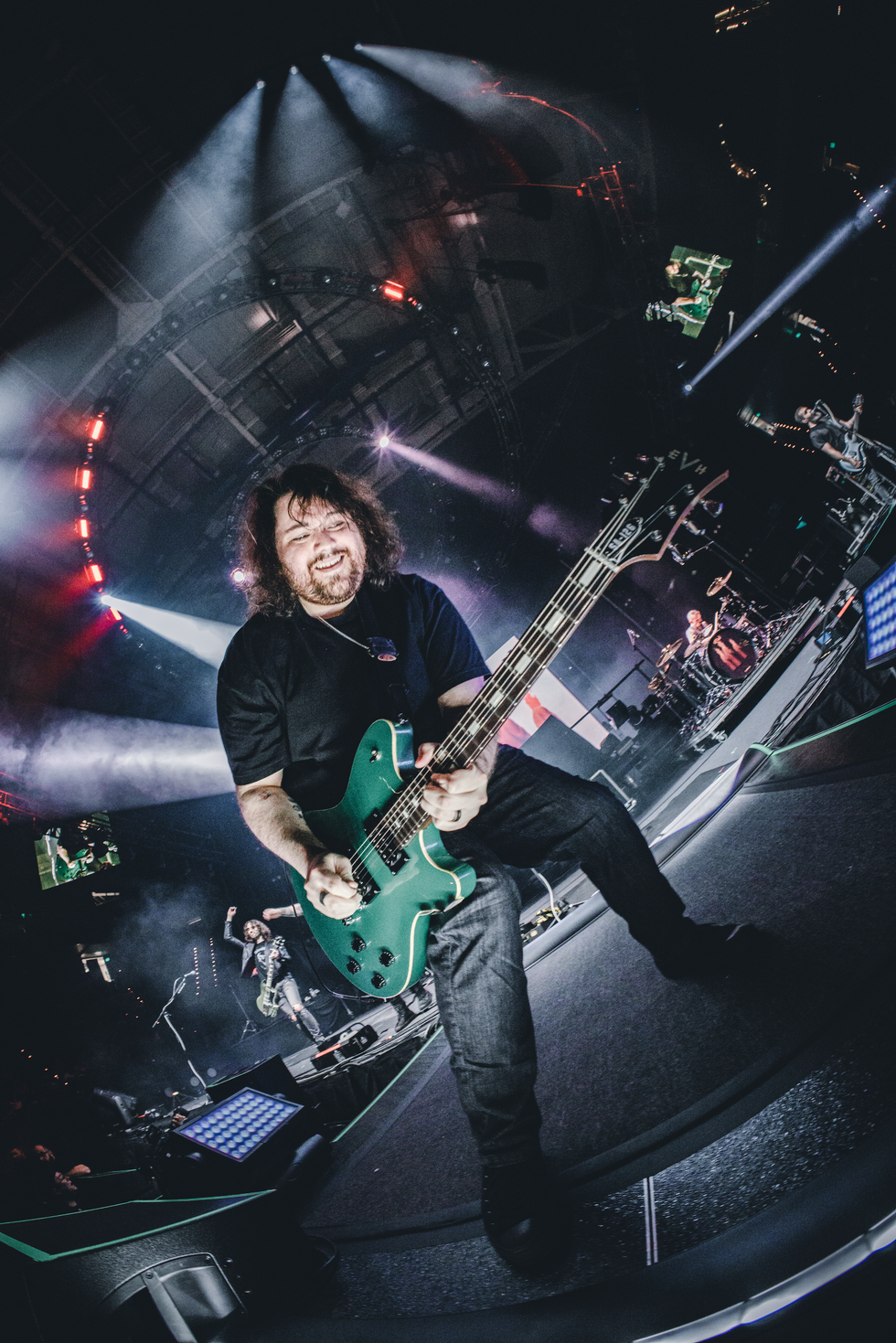Vulfpeck bass ace Joe Dart joins his bandmate on Wong Notes to chop up all things bass, from how he developed his “voice” to his favorite practice regimes.
This time on Wong Notes, Cory is joined by his Vulfpeck and Fearless Flyers copilot Joe Dart. Wong doesn’t waste any time, diving in by asking Dart, by now renowned as a modern bass wizard with flawless fundamentals, how he developed he signature voice on the bass. As Dart explains, it came from listening to players who had their own distinct voice, who sound like “they’re singing a part within the song,” he says. These “philosophers of the low-end,” like Flea, imprinted the value of total intention and feeling in every note, as if any single one could be your last.
Dart throws it back to his first bass—a Samick—and remembers how it’s ridiculously high action was like weight training for the rest of his career. He still likes his strings suspended up higher than most, which allows his “brute force” slapping. Wong and Dart trade notes on practice regimes, and Dart offers advice for young players: Learn your scales, sure, but most importantly, “play with as many different people as you can.” Plus, Dart breaks down his differing approaches to instrumental and vocal tracks.
Later on, the bandmates ponder the mental trap of the social media comparison game, and wonder at how algorithms impact which music rises to the top of the heap. What does Dart hope to remembered for? With any luck, he’ll have works as iconic as his grandfather’s, Israel Baker, whose violin playing you’ll recognize not just from collabs with Frank Sinatra and Ella Fitzgerald, but some of the most famous film scores and TV show theme songs.

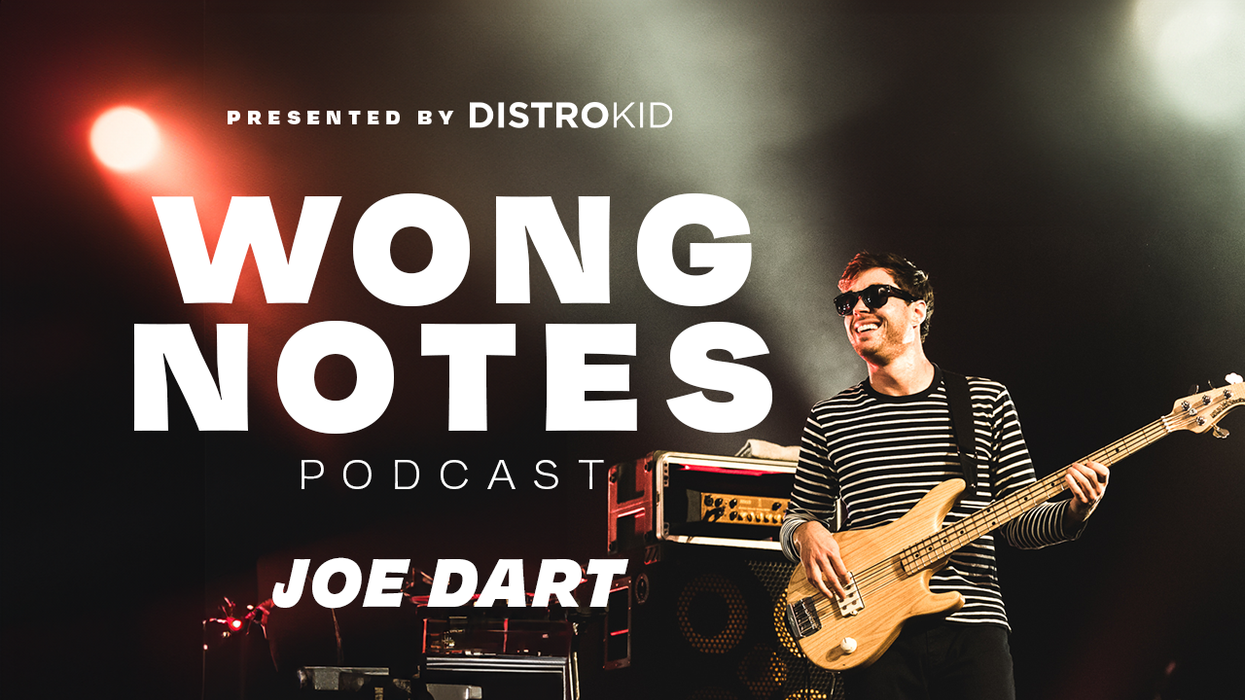
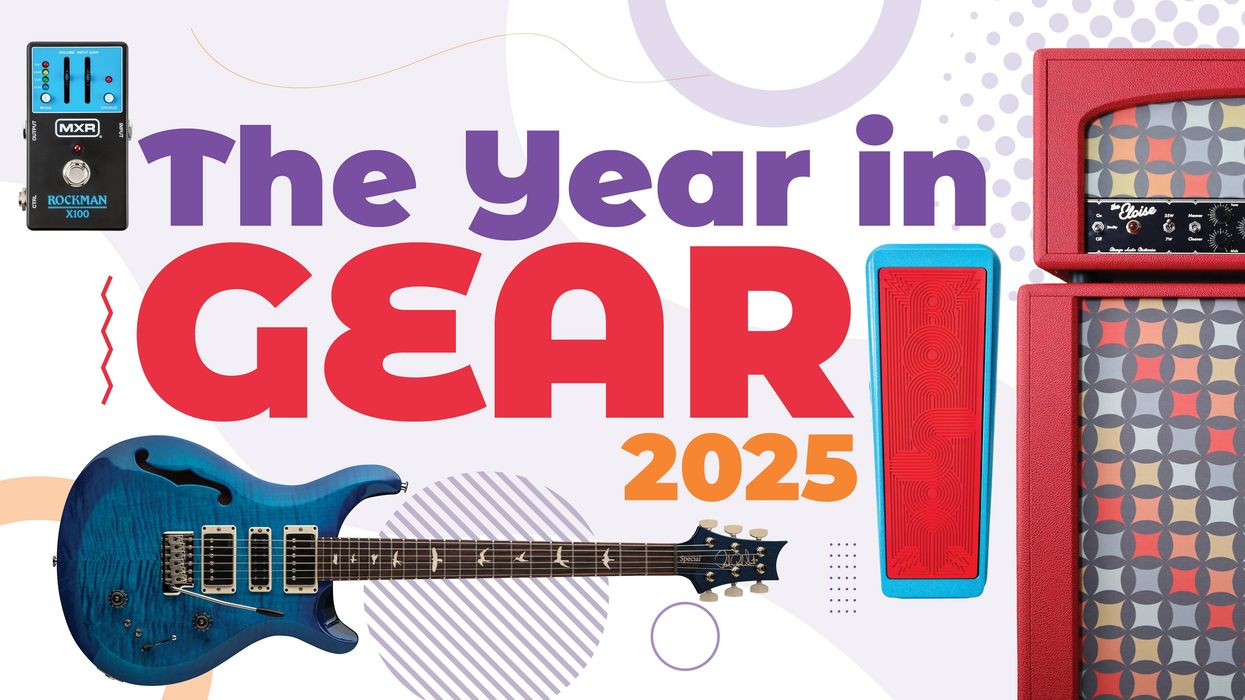
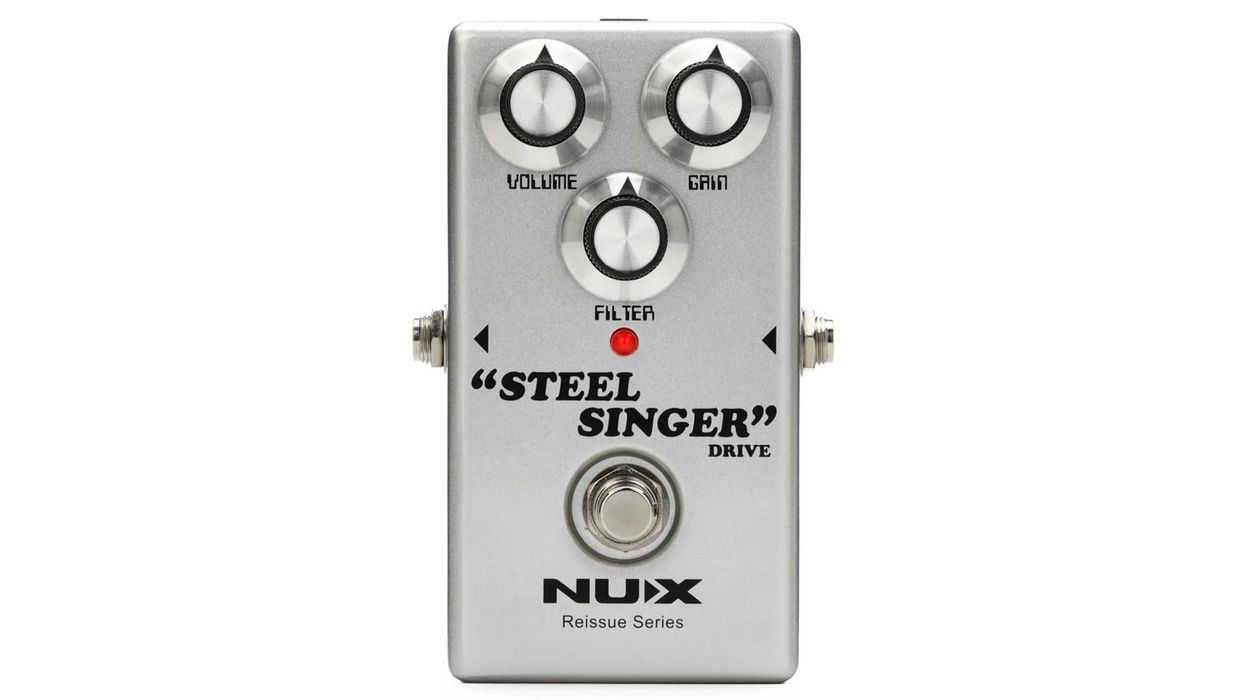

![Rig Rundown: AFI [2025]](https://www.premierguitar.com/media-library/youtube.jpg?id=62064741&width=1245&height=700&quality=70&coordinates=0%2C0%2C0%2C0)












 Shop Scott's Rig
Shop Scott's Rig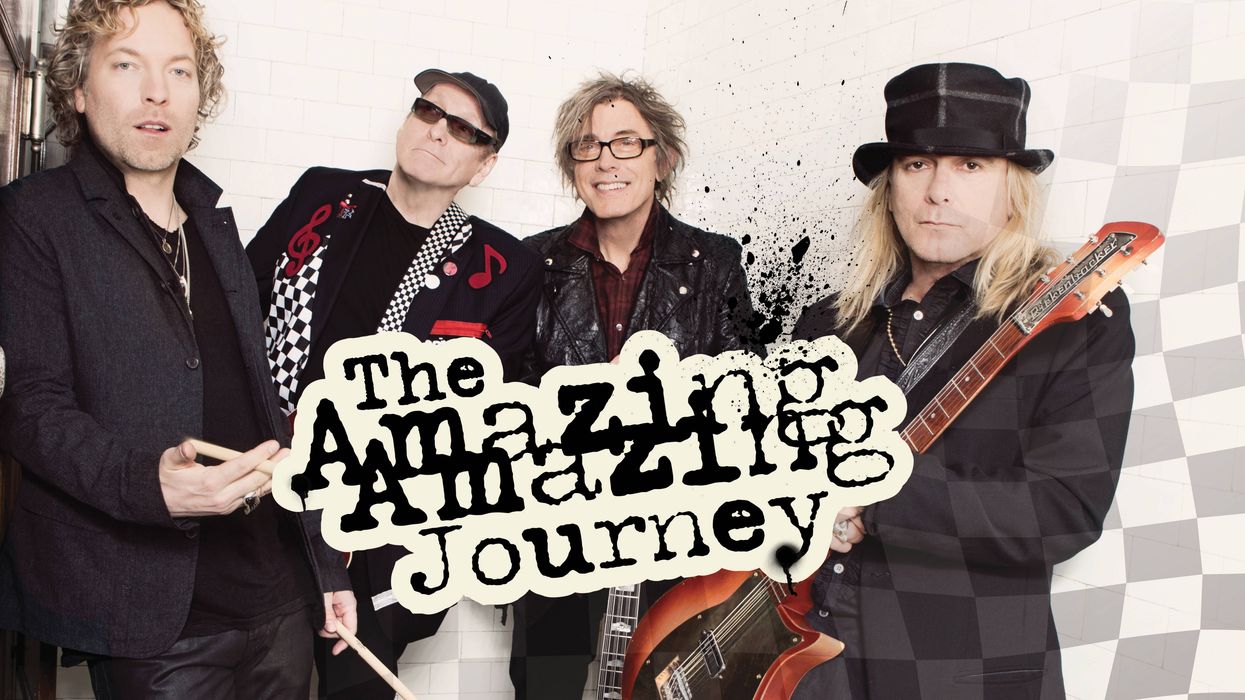
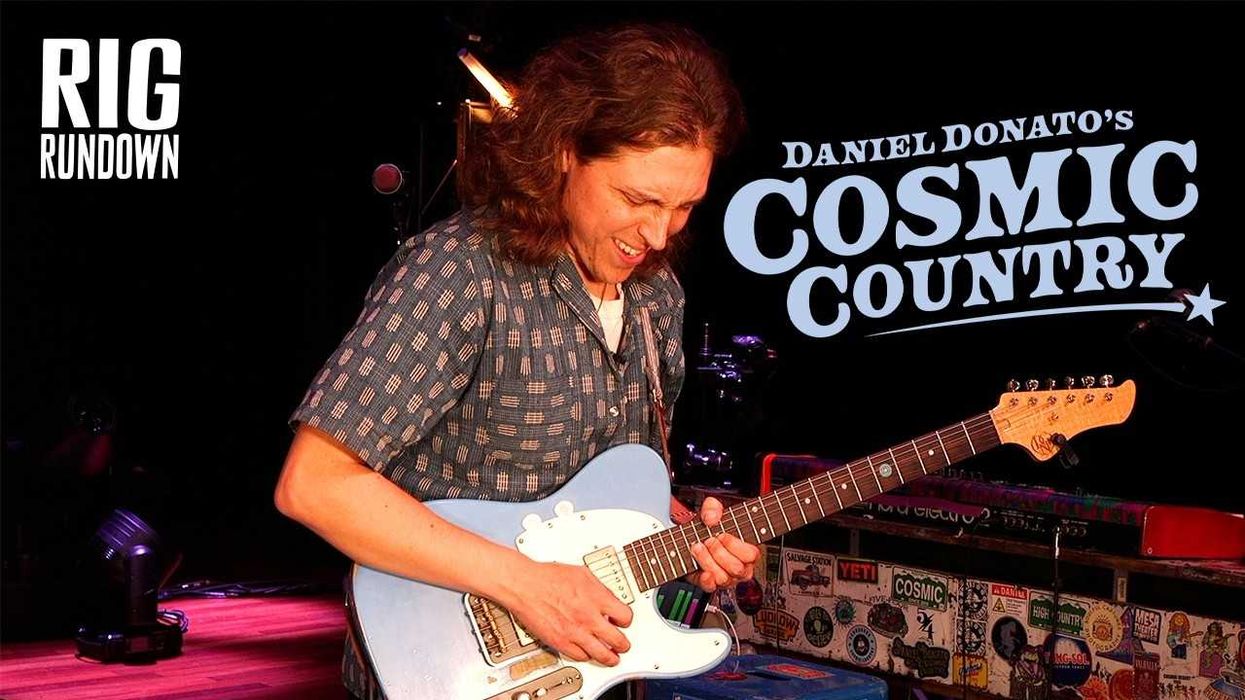


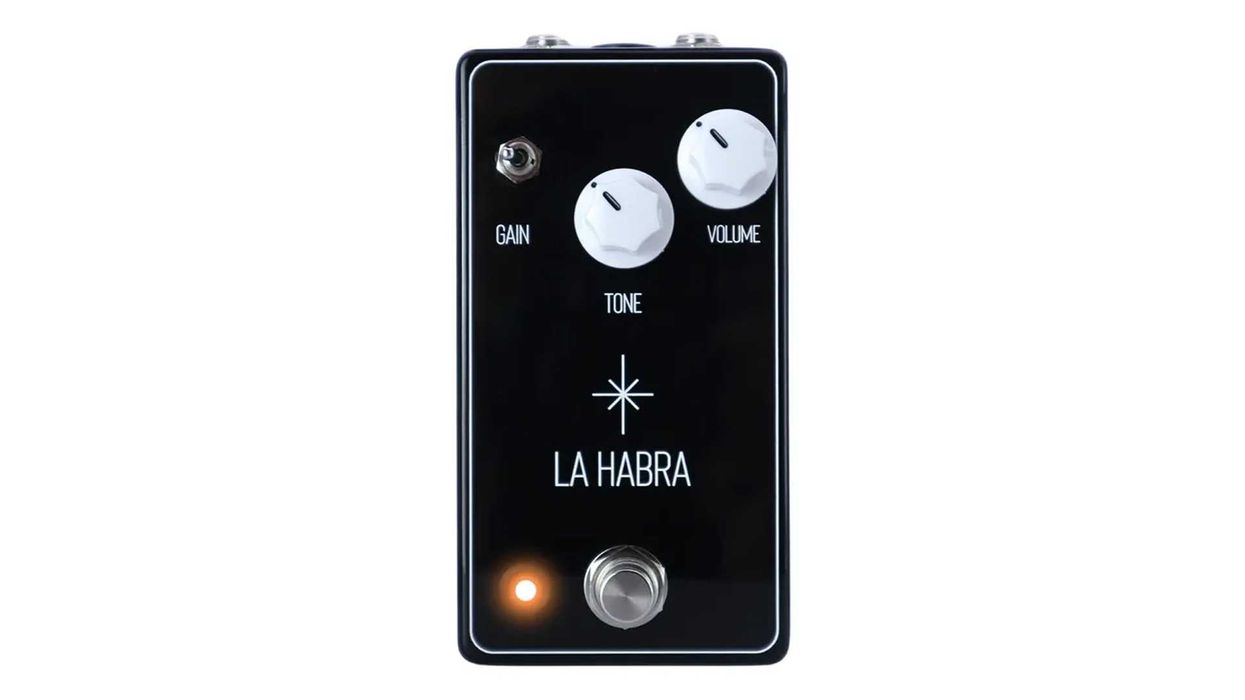
![Devon Eisenbarger [Katy Perry] Rig Rundown](https://www.premierguitar.com/media-library/youtube.jpg?id=61774583&width=1245&height=700&quality=70&coordinates=0%2C0%2C0%2C0)








 Zach loves his Sovtek Mig 60 head, which he plays through a cab he built himself at a pipe-organ shop in Denver. Every glue joint is lined with thin leather for maximum air tightness, and it’s stocked with Celestion G12M Greenback speakers.
Zach loves his Sovtek Mig 60 head, which he plays through a cab he built himself at a pipe-organ shop in Denver. Every glue joint is lined with thin leather for maximum air tightness, and it’s stocked with Celestion G12M Greenback speakers.








 Luis Munoz makes the catch.
Luis Munoz makes the catch.